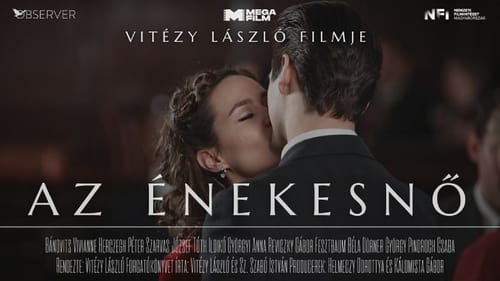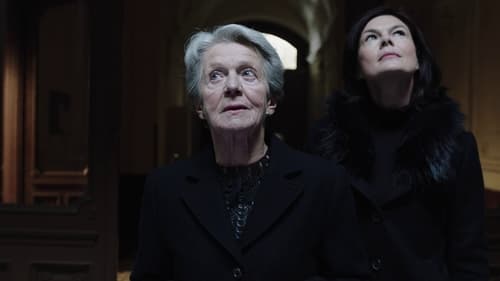
Erzsók

Heni
Zsófi, a rebellious teenager, lives in a tiny flat with her little sister, Mesi, and her unstable mother, Bea. Zsófi discovers late that she is pregnant and decides to give up her baby through open adoption to an infertile couple. Bea cannot accept her daughter’s decision, but she does not realize that neither Zsófi, nor the circumstances, are suitable to welcome a newborn. Zsófi has always had to behave like a grown-up, working and making sensible decisions, instead of her mother and for her sister. She is still in high school and her only advantage is her table tennis career, for which she works assiduously. She plans the adoption thoroughly with the help of a social worker. Following the birth, she is given six weeks by law to change her mind and ask for her child back. She seems to be able to control her feelings ruthlessly and continue towards the goals she has set. At the same time, her maternal feelings intensify, doubts arise, and she slowly begins to question her decisions.


Mária

The mother loves her daughter; the daughter loves her mother. The tragedy of misunderstood love. The adaptation of Magda Szabó's novel translated into twelve languages.

Márta
Zoltán Farkas, a well-known constructor, lives his life as Don Juan, while his young wife (Éva) want to divorce and has a lover, who is a young lieutenant. They go there last trip together to Zoltán's birthplace, where no one knows, that they will divorce, until some secrets getting revealed. Based on Ferenc Herczeg's novel.

Dr. Sulyok
Gergő’s mother is obsessed with having a grandchild. She has a serious heart disease and has only days left to live. To give his mum some joy during her final hours, Gergő asks his neighbour Saci, who is five months pregnant, to visit his mother in hospital with him and tell her that she is carrying his child. It all goes smoothly, but a new heart arrives, and his mum is operated. Therefore, Gergő and Saci are forced to play the roles of the loving couple.

Kocsmáros

Two boys from bad financial situation join to a law enforcement organization because of a charismatic leader, but soon they realize how hard is to decide who is guilty, and who is a victim.

Igazgatónő

Anna
Andor Czettl, in his early sixties, visits the secret service archives one day to read into the reports about himself and discovers a shocking fact. His very best friend János Pásztor was an informer, spying on him and writing reports about him for decades. Sára Cserhalmi's first feature focuses not so much on the actual problem of informing and betrayal as on the contradictory relationship of the two protagonists. It avoids any final judgments. First and foremost, it seeks answers to questions like how an informer can live in our present times and how the one being reported on can cope with this state. Can a close friendship that began decades ago last if such betrayal comes to light? How can someone live and cope with this fact?

Erzsi, Tita's mother
Tita the teenage girl doesn't like her life, so she tries to lie a new, more interesting one for herself. She slips into a world of more lies, parties, drugs and sex.

Mrs. Ficske
The title of this Hungarian comedy is a German pun on "room for rent" (Zimmer Feri). Near-broke and desperate, Hungarian entrepreneur Feri decides to put a sleazy spin on tourism. After leasing a Lake Balaton boarding house, he moves in his gang -- wife, nephew, daughter, and the daughter's boyfriend -- and then sets out to scam unsuspecting German tourists. Written and directed by Peter Timor (Dollybirds). This film is also known as Feri's Gang. ~ Bhob Stewart, Rovi

Eva
Karcsi, a Roma policeman, lives with Eva, a Swede. One day he is called to the scene of the murder of a wealthy trafficker named Schulter. He begins to investigate the crime, interrogate neighbours and suspects, and untangle a complex situation - one that he, himself, complicates even further. For he is a gypsy, who despite being adopted and raised by "regular" Hungarians, has his nose rubbed in his minority status every day. The film, which is based on the novel by Ákos Kertész, is a shrewd genre work full of dusky humour and surreal situations. Tabló follows a vivid succession of strange images that eventually lead to the emergence of the central story about a charismatic police officer on a tireless quest for the truth, though he must fight against virtually everyone and is just as fallible as the next person. Tabló makes a statement on the issue of race and racism - or, indeed, relations between any minority and majority.

Irénke, kocsmárosnõ
The story of hopelessness, which is independent and politics. Symbolic little people are faced with the absurdly large accelerated world. Resolutely themselves taken up the challenge, bravely struggling against fate ...

Lizi
"Colossal Sensation!" sees the history of Hungary in the 20th century through the eyes of twin circus clowns. For them, as for all Hungarians, it is a story of feast and famine, nostalgia and regret, suffering and triumph, although not all Hungarians had the misfortune (or was it the opportunity?) to destroy a wristwatch personally given to the Hungarian Party Leader by Stalin himself. - Roger Ebert

Piroska
The investigation of the melon affair, to remain undisclosed for thirty years, is led by Major Piroska Szabó, the secret girlfriend of Mr. Kálmán, the boss, with a charge against the policemen Lajos Endúros and Richard Wagner. Sitting on the terrace of their favourite snack bar, the two policemen, along with Sergeant-Major Badár, take an oath not to testify against each other, and to mislead the authorities by giving false evidence.

Irma arrives at her 18th birthday in a reform school.











